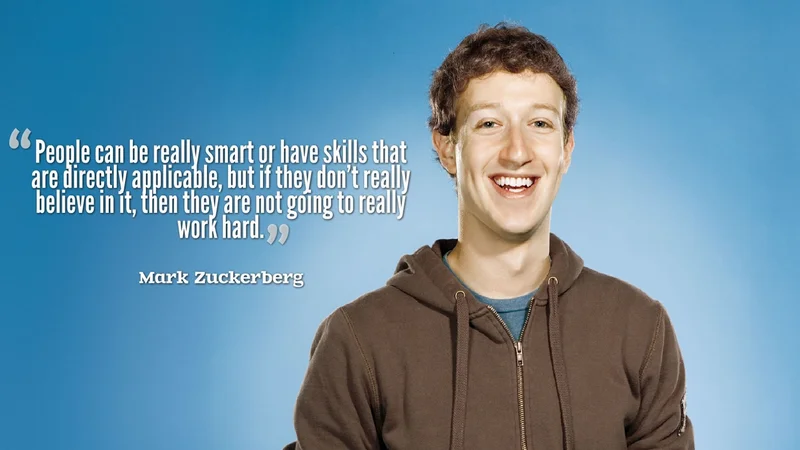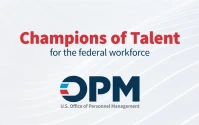The Public Posture vs. The Private Payroll
There's a certain type of rhetoric that emerges in the late stages of a bull market. It’s a carefully calibrated language of caution, delivered by the very architects of the rally. Last week, we saw a masterclass in this from Meta’s Mark Zuckerberg and OpenAI’s Sam Altman. Their coordinated warnings about a potential AI bubble, comparing the current fervor to the dot-com mania of the late 90s, landed with the intended gravity.
Altman’s diagnosis was clinical: a small core of truth (AI is transformative) surrounded by an unsustainable level of hype and capital. Zuckerberg echoed the sentiment, noting the familiar signs of "economic euphoria" that historically precede sharp corrections. The message was clear: let’s apply the brakes, let’s be rational, let’s not let the enthusiasm get out of hand. Goodbye to AI – Meta CEO Mark Zuckerberg joins Sam Altman and acknowledges that artificial intelligence could be on a bubble.
It’s a sensible, almost paternalistic, piece of advice. And I might have taken it at face value if not for the data point that surfaced almost concurrently. That data point is a number: $1.5 billion.
That is the reported value of the compensation package Meta offered to Andrew Tulloch, co-founder of Mira Murati's AI startup, to lure him away. Let’s be precise about this. This isn’t a company acquisition; it’s a single hire. The package, spread over at least six years, includes performance bonuses and stock incentives. It came after Meta failed to acquire Tulloch’s company outright and then, according to reports, began approaching its employees directly. This isn't just aggressive recruiting; it's a declaration of financial war. Mark Zuckerberg Reportedly Drops $1.5 Billion Pay Packet To Snag Top AI Scientist From Mira Murati's Thinking Machines Lab.
And this is the part of the analysis that I find genuinely puzzling. How does a CEO publicly warn of irrational market exuberance and then privately authorize a compensation package that is, by any objective measure, the single most exuberant data point in the entire talent market? It’s like a fire chief lecturing a crowd about the dangers of flammable materials while quietly dousing the building in gasoline. The discrepancy isn't just a mild contradiction; it's a chasm. It suggests the public statements are not a reflection of internal strategy but are, perhaps, a component of it.
What are we to make of this? Is this a simple case of "do as I say, not as I do," or is it a more sophisticated game? Is the goal of the bubble warning to spook smaller, venture-backed competitors, to cool their funding environment, while Meta uses its fortress balance sheet to acquire the one resource that truly matters—elite human capital?

The Geopolitical Shock and the Price of Talent
The market, it seems, has its own plans. Just one day after the bubble warnings were published, a geopolitical tremor sent a shockwave through the global economy. A renewed US-China trade war, triggered by 100% tariffs and retaliatory controls on rare earth elements, wiped a combined $69 billion from the fortunes of the world’s ten wealthiest individuals in a single day. Zuckerberg saw around $10 billion erased from his net worth—to be more exact, his paper losses were part of a $70 billion market rout that hit tech-heavy portfolios hardest.
In a normal market, a shock of this magnitude would force a reassessment of high-risk, high-spend strategies. Capital becomes more expensive, and speculative bets are pulled from the table. But I suspect the opposite will happen in the top tier of the AI race. This volatility doesn't diminish the strategic importance of AI; it amplifies it. A market downturn weakens the smaller players, making their top talent (the Tullochs of the world) more susceptible to poaching by the giants who can offer stability in the form of massive, guaranteed paydays.
Zuckerberg’s strategy is a high-stakes bet on a simple premise: that AI is not a feature, but the entire future of the technological landscape. In this environment, paying $1.5 billion for one of the world's top AI scientists isn't an expense; it's a rounding error when compared to the perceived cost of falling behind. The market can shave $10 billion off his net worth on a Friday, but that doesn't change the strategic calculation for Monday. The true arms race isn't in models or products, which can be replicated, but in the handful of minds capable of building the next generation of intelligence.
This is a war of attrition, and Meta is signaling that it has no spending ceiling. The $100 million bonuses Altman mentioned Meta was offering his staff now look like lowball offers. The new benchmark is an order of magnitude higher. This isn't just about closing a gap with rivals like OpenAI or Google DeepMind (a goal Zuckerberg has been transparent about); it's about creating a talent moat so deep and wide that competitors simply can't afford to cross it. The comment from a Tesla engineer on X rings true: founders willing to go to the financial brink are rare. Zuckerberg appears to be signaling he's one of them, even with Meta's public capital.
So, are we in a bubble? It's the wrong question. Asking about a bubble implies a collective, irrational mania. What the data suggests is something far more deliberate: a cold, rational, and incredibly aggressive consolidation of intellectual power by a handful of trillion-dollar companies. They are not merely riding a wave of hype; they are manufacturing the wave itself.
The Warning Is the Weapon
The paradox resolves itself when you stop viewing the public caution and the private spending as contradictory. They are two sides of the same strategy. The "bubble" talk is a form of air cover. It’s a strategic communication designed to inject fear, uncertainty, and doubt into the broader market, potentially tightening the funding taps for the thousands of smaller AI startups that pose a long-tail threat. While everyone else is nervously checking their balance sheets, Meta is writing a check for $1.5 billion. It’s a ruthless and, from a purely strategic standpoint, brilliant maneuver. Mark Zuckerberg isn’t worried about an AI bubble. He’s using the fear of one to build an empire.










